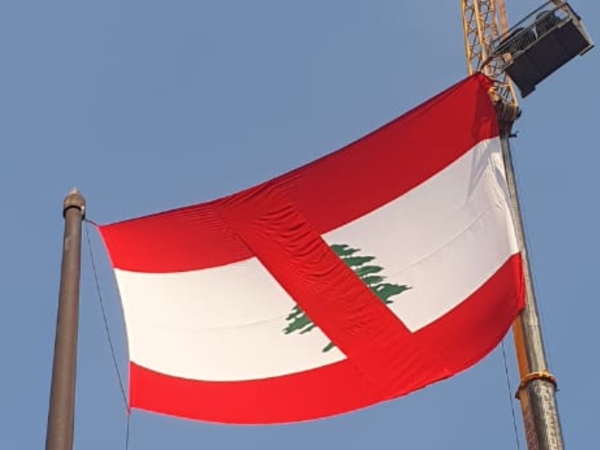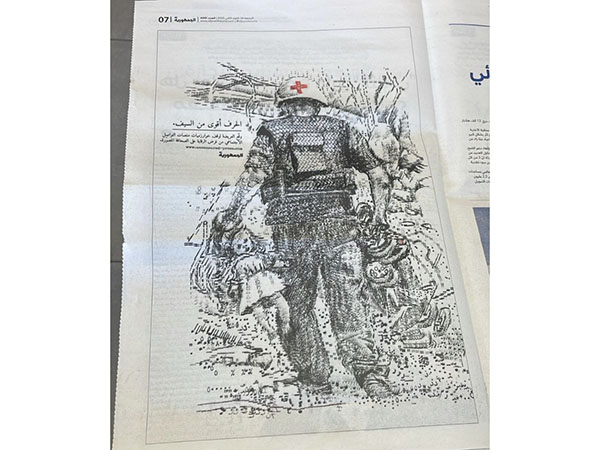Industry Talk
Nida’ al Watan, a new daily for Lebanon
by Ghada Azzi
March 27, 2019
Ask anyone in the newspaper business and they’ll tell you that print no longer makes sense as a mass medium. Readership has fallen, advertising revenue has plummeted, and a paper’s impact on popular culture has shrivelled. Digital and social media have seen to that.
In the UK alone, 228 local titles have closed since 2005, while in the US there are now a fifth less journalists than there were in 2001. Lebanon has not been spared this collective industry trauma. Al Anwar, As Safir and Al Mustaqbal have all folded recently, redundancies are rife, and even An Nahar has been struggling, cutting budgets to make savings.
Yet into this unstable environment walks Bechara Charbel, the editor-in-chief of the soon-to-be-launched daily newspaper Nida’ al Watan. Backed by the Lebanese businessman and former Kataeb partisan, Michel Mecattaf, the paper’s first printed edition is expected to hit the streets sometime in the summer. It will consist of 20 to 24 pages and will have an estimated print run of 10,000 copies.
Somehow Charbel and the paper’s backer believe Nida’ al Watan can buck the print-is-dying trend, with the Beirut-based publication in the process of recruiting a team of editors, reporters, correspondents, freelancers, layout designers and infographic designers to run the paper. It will, says Charbel, include journalists from all sects, will have an online presence, and will be launched with an advertising campaign created by M&C Saatchi.
“It may be surprising for a person or group to launch a print newspaper at a time when newspapers are closing down due to the existential crisis being experienced by several print newspapers around the world,” admits Charbel, a former newspaper editor who has worked for the likes of An Nahar, Al Hayat and the French press agency AFP. “But the launch of Nida’ al Watan is in response to this existential crisis.
“Firstly, we want to express the belief that the print press has not died and will not die if it adopts a new approach to journalism. Secondly, newspapers are still the most trustworthy source of information for a large number of readers, especially influential readers and decision makers. This can be witnessed on a global scale whereby The New York Times gained millions of readers after investing in the human element. It is similarly the case with an endless number of Western newspapers.
“Thirdly, and most importantly, the newspaper that we are in the process of establishing is a political newspaper par excellence, which carries a project and a cause that is contrary to commercial newspapers or ones that express people’s interests.”
Despite regional and local newspapers struggling to survive, Charbel is confident Nida’ al Watan can thrive. What’s more, he believes there is still a viable market for the right local daily and the advertising to support it.
“There is definitely a future for print,” he insists. “We are launching the newspaper at this time because of our belief that the media sector is in dire need of a new press experience and is yearning for a modern press that reduces the legacy of the traditional profession. Also, the founding generation of the Lebanese press feel nostalgic, and the different pitfalls that emerged over time did not allow for a high number of readers or for breakthroughs with the younger generation.”
“We are launching the newspaper at this time because of our belief that the media sector is in dire need of a new press experience."
Charbel is an old school press aficionado. He loves newspapers: the type, the paper, the layout and the words. He’s not alone. Boutique magazines, for example, are proving extremely popular, with a love of print and design driving their resurgence globally. “People still like to read, they just are more selective in what they read,” he says.
He quotes figures drawn from the world of publishing. A paperback costs up to three times more than an ebook, he says, yet 85 per cent of people still prefer to pay more for the print version. He’s right. Book sales are booming, especially in the UK, where more printed books are being sold than ever before, far outstripping digital sales.
What’s more, the launch of Nida’ al Watan is not a complete anomaly. Last year, two new Sunday newspapers were launched in Scotland. Yet any new newspaper remains an audacious project. The costly nature of print simply does not make sense in a world where production and distribution costs have been rendered extravagant by digital media.
Yet Charbel remains unfazed. “I was looking for a step up and a new challenge and this is a unique opportunity in a unique place with a unique market,” he says. “There are still a lot of people here who really value printed products.
“We need a digital and print media platform that gathers press skills and commits to the Lebanese cause,” he adds. “For us, it is a set of unchangeable fixtures of which freedom, independence and the full-fledged state are of high importance.”












